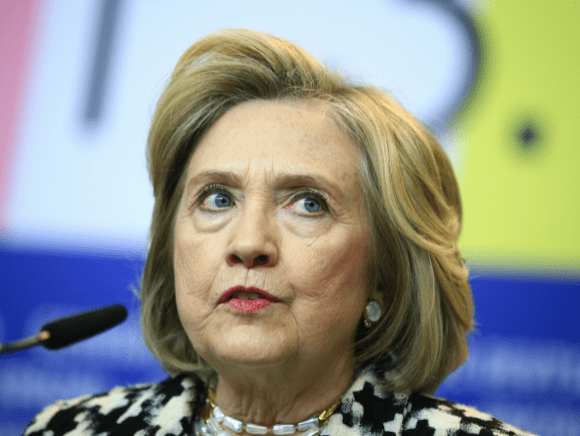
(Photo by Abdulhamid Hosbas/Anadolu Agency via Getty Images)
Rumors of a conspiracy to steal the 2016 presidential election have seemingly turned out to be not so farfetched, after all – but, as Special Counsel John Durham’s investigation is revealing, the conspirators are not who the media and elected Democrats claimed they were. As the trial of former Perkins Coie attorney Michael Sussmann – who was on the payroll of Hillary Clinton’s presidential campaign – gets underway, witness testimony reveals that Clinton herself knew her campaign was feeding stories of surreptitious communications between former President Donald Trump’s campaign and a Russian bank with alleged Kremlin ties to a friendly media. That disinformation project, according to a key witness, was green-lighted by either Clinton herself or top campaign officials, including Jake Sullivan, who now serves as Joe Biden’s national security advisor.
 The data that supposedly revealed a communications backchannel between the Trump Organization and Russia’s Alfa Bank was examined by intelligence officials and deemed not credible. Former FBI general counsel, James Baker, testified that the Bureau concluded “there was nothing there” after looking into the alleged link. Still, Clinton’s top campaign staffers met to discuss the matter and agreed to disclose it to the media. Those present at the meeting included campaign manager Robby Mook, general counsel Marc Elias, campaign chairman John Podesta, communications director Jennifer Palmieri, and policy adviser Jake Sullivan. This is all according to testimony from Mook himself, who also admitted they were not “totally confident” in the data’s legitimacy.
The data that supposedly revealed a communications backchannel between the Trump Organization and Russia’s Alfa Bank was examined by intelligence officials and deemed not credible. Former FBI general counsel, James Baker, testified that the Bureau concluded “there was nothing there” after looking into the alleged link. Still, Clinton’s top campaign staffers met to discuss the matter and agreed to disclose it to the media. Those present at the meeting included campaign manager Robby Mook, general counsel Marc Elias, campaign chairman John Podesta, communications director Jennifer Palmieri, and policy adviser Jake Sullivan. This is all according to testimony from Mook himself, who also admitted they were not “totally confident” in the data’s legitimacy.
That uncertainty didn’t stop them, though, as the election grew closer, and Trump proved to be a more formidable opponent than they had perhaps expected. Once the story was out there in the public eye, Clinton herself spread the allegation through her Twitter account, portraying it as some sinister conspiracy she had only just discovered. “Computer scientists have apparently uncovered a covert server linking the Trump Organization to a Russian-based bank,” she tweeted on Oct. 31, 2016, quoting from an official campaign statement from Sullivan.

Hillary Clinton (Photo by Mark Makela/Getty Images)
Mook in his testimony defended the campaign’s decision to go to the media despite doubts about the credibility of the information by, essentially, throwing sympathetic journalists under the bus. Mook claims he had assumed reporters would do their due diligence; that, once in possession of the data, they would “run it down” and verify its authenticity before reporting on it.
The former campaign manager also testified that he spoke with Clinton herself about the data they had obtained, and she approved of going to the media with it. Though Mook is uncertain about whether Clinton initiated the media campaign or merely approved of it, Special Counsel John Durham’s investigation into the genesis of the Russia collusion story has finally thrown up the name of the former candidate herself.
More central to the Sussmann trial itself, Mook denied that he or any other Clinton campaign official authorized the attorney to approach the FBI with details of the alleged Trump-Alfa Bank link. Sussmann requested a meeting with James Baker in September of 2016, allegedly telling the FBI official that he was not acting on behalf of a client – even though Sussmann was billing his time to Clinton’s campaign. Durham alleges that Sussmann was in fact working for Clinton and also for technology executive Rodney Joffe, who used a team of researchers to compile the data that show the alleged Alfa Bank link.
Sussmann’s trial continues and, thus, little can at this point be reported as established fact. Sussmann has been charged with making a materially false statement to the FBI. Regardless of whether the lawyer is found guilty, Mook’s testimony moves the infamous and already debunked Trump-Russia collusion theory one step further away from reality and a step closer to a nefarious opposition research plot orchestrated by Hillary Clinton or her closest aides.
Remember to check out the web’s best conservative news aggregator
Whatfinger.com — the #1 Alternative to the Drudge

